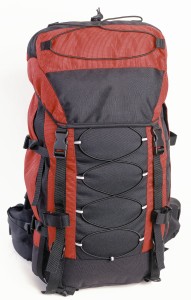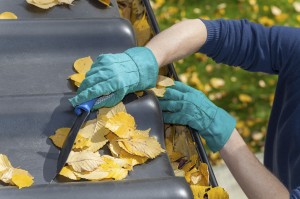 The torrential blizzard predicted to bury New York City turned out to be just delightful snow flurries dusting the iconic Manhattan landmarks. For Boston and the rest of New England, however, Winter Storm Juno lived up to its headliner forecast, dumping 3 feet of snow and more before moving on.
For every American living in snow country, however, Juno served as a wake-up call, reminding us that the best time to prepare for the "big one" is while the sun is shining, before dark clouds appear on the Weather Service radar and time is running out.
These simple tips will help you get ready for the next time the snow piles up, the power goes out, the roads are closed, and help may be days away.
The torrential blizzard predicted to bury New York City turned out to be just delightful snow flurries dusting the iconic Manhattan landmarks. For Boston and the rest of New England, however, Winter Storm Juno lived up to its headliner forecast, dumping 3 feet of snow and more before moving on.
For every American living in snow country, however, Juno served as a wake-up call, reminding us that the best time to prepare for the "big one" is while the sun is shining, before dark clouds appear on the Weather Service radar and time is running out.
These simple tips will help you get ready for the next time the snow piles up, the power goes out, the roads are closed, and help may be days away.
Before the Storm...
...Put Together a 72-Hour Kit The first three days after a big storm are the toughest. With roads closed and walkways buried, running to the store is dangerous, if not impossible. In addition to paralyzing snow and ice, winter storms often cause widespread power outages and broken water pipes. So, a useful 72-hour kit should contain water, heat, light and communications, as well. Here is a short list of the types of things you'll likely need until you can venture out after a big winter storm: [caption id="attachment_17514" align="alignright" width="191"] Keeping your Storm Kit in a sturdy backpack makes it ready to go in times when you need to evacuate.[/caption]
Keeping your Storm Kit in a sturdy backpack makes it ready to go in times when you need to evacuate.[/caption]
- Three days of non-perishable foods like canned goods, dried fruits, nuts, and freeze-dried meals
- A manual can opener
- Three days of water (at least three gallons per person)
- First-aid kit, with essential prescription medicines
- Flashlights, candles and light sticks
- Cell phone, with hand-crank charger
- Portable radio or NOAA weather radio
- Extra radio and flashlight batteries
- Baby-care items
- Pet supplies
- Extra blankets and sleeping bags
- A fire extinguisher
 Some simple household chores will help you avoid some serious winter storm damage.[/caption]
...Get Your House Ready
A few regular home maintenance tasks can do more than just keep a neat home. They can also protect you and your family in the event of a big snowfall or ice storm, as well.
Some simple household chores will help you avoid some serious winter storm damage.[/caption]
...Get Your House Ready
A few regular home maintenance tasks can do more than just keep a neat home. They can also protect you and your family in the event of a big snowfall or ice storm, as well.
Take time to see to the following:
- Ice, snow and wind can snap tree limbs down onto the roof, windows and power lines. Trim away tree branches close to your home.
- Keep rain gutters clean. Otherwise, snow and ice can build up and allow water to seep under the roof and eaves causing damage to walls and ceilings.
- See that smoke and carbon monoxide (CO) detectors are working and store fresh batteries.
- Have your chimney flue checked and cleaned, if necessary, to lessen the risk of fire.
- Make sure your home is properly insulated. Caulk and weather-strip doors and windows to keep out cold air.
- Install storm windows or cover windows with plastic from the inside to provide insulation.
- Wrap pipes in insulating foam to keep them from freezing. Let faucets drip a little to avoid freezing.
- Know how to safely shut off gas, electric power and water valves.
- Check your homeowner's insurance policy to ensure adequate coverage.

- Power sensing flashlights come on automatically when the power goes out. Plug-in a few around your home. Candles and light sticks should be a prep staple, as well.
- Furnaces, even gas and oil-fired ones, cannot operate without electricity to power the blowers. An indoor rated kerosene or propane heater will keep living spaces livable.
- Keep a bit of cash stashed in a safe place, since stores and other services (if they are open) will not be able to process credit and debit cards.
- Make a practice of refilling your car's tank at the half-empty point. This assures you will have at least a tank half-full when electric gas pumps won't operate.
- Store ice packs that can be moved into the fridge, or into a small cooler for meds.
- Know how to release garage door openers so that you can manually open your garage.

1 comment
TREE hartwig
THANK YOU FOR YOUR HELPFUL INFORMATION..CAN’T WAIT TO GET SOME MORE INK FOR MY PRINTER SO I CAN PRINT IT OUT..